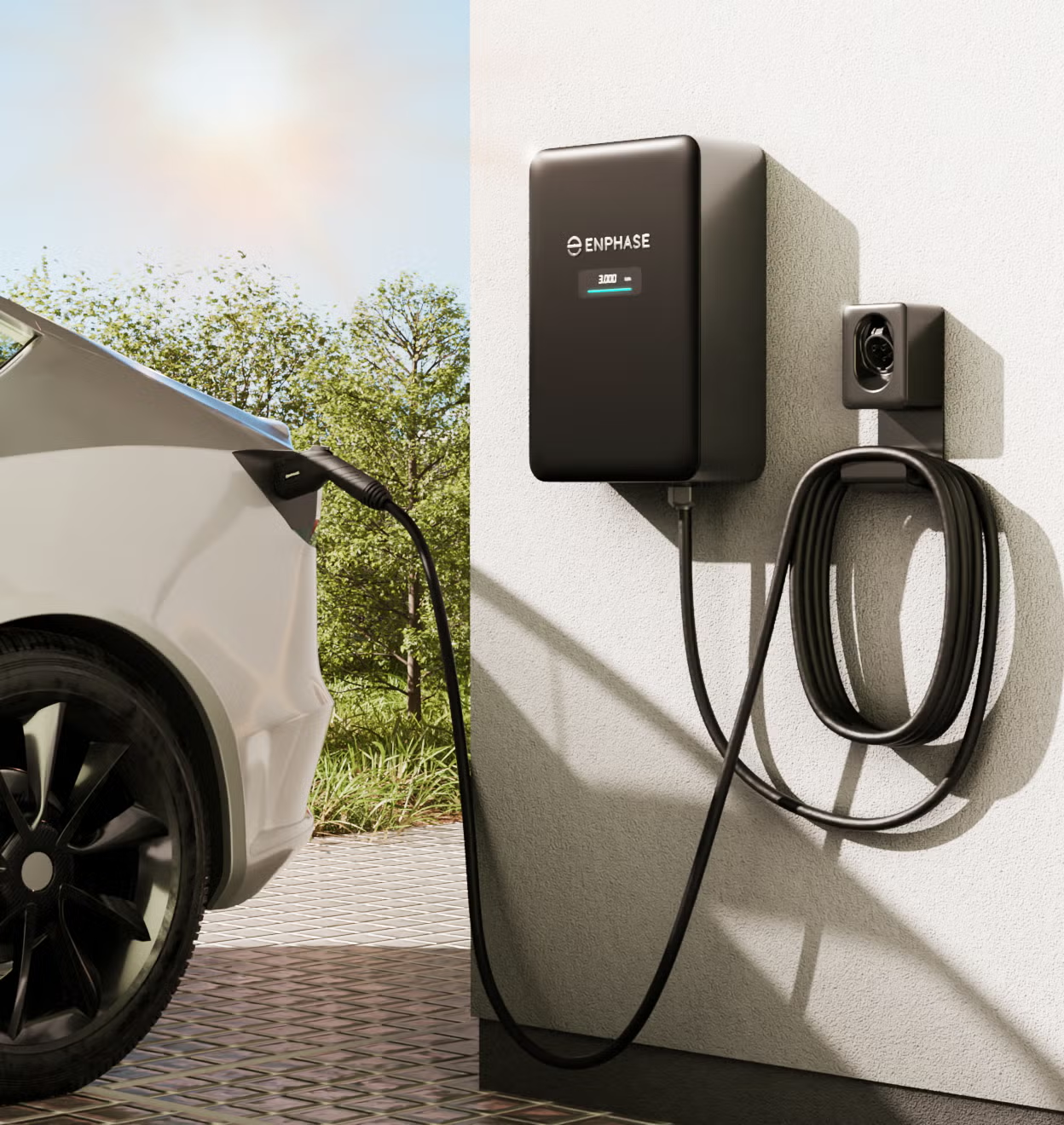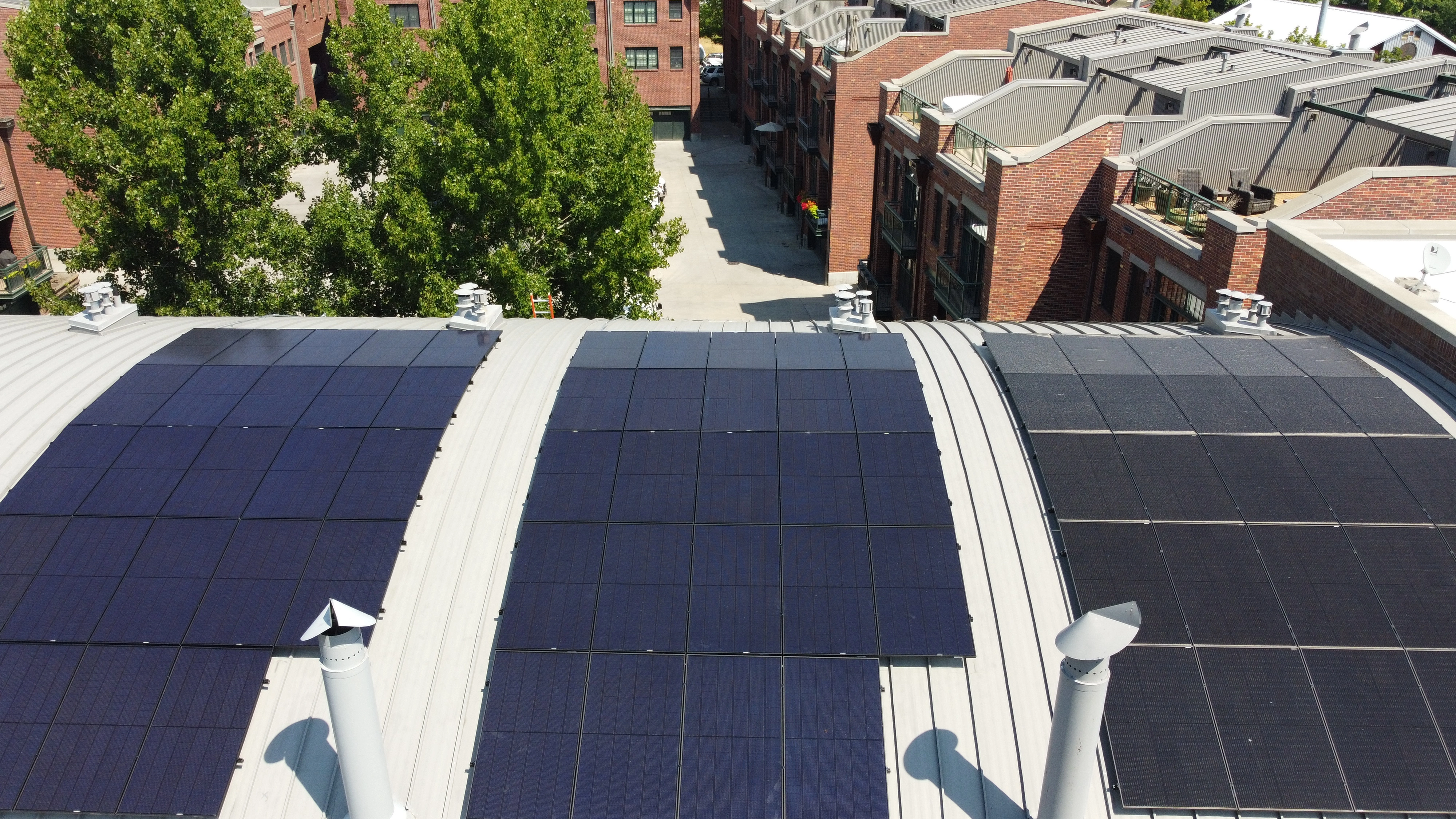Residential Solar in Eugene, OR – Incentives & Energy Savings

Eugene, Oregon, is known for its lush landscapes and commitment to sustainability. As the demand for renewable energy sources continues to rise, residential solar energy systems have become increasingly popular in the area. This article explores the incentives available for homeowners in Eugene, the potential energy savings, and the overall impact of adopting solar energy.
Understanding Solar Energy
Solar energy harnesses the power of the sun to generate electricity or heat. By converting sunlight into usable energy, solar panels can significantly reduce reliance on traditional fossil fuels. In Eugene, where sunlight is abundant, the potential for solar energy is particularly promising. The city's commitment to sustainability and renewable energy sources aligns perfectly with the growing trend of solar adoption, making it an ideal location for both residential and commercial solar projects.
The Basics of Solar Technology
Solar panels, or photovoltaic (PV) systems, are the most common technology used in residential solar installations. These panels consist of numerous solar cells that convert sunlight into electricity. When installed on rooftops or in yards, they can generate enough energy to power homes, potentially leading to significant savings on electricity bills. Additionally, advancements in solar technology have led to the development of more efficient panels that can capture a greater amount of sunlight, even on cloudy days. Innovations such as bifacial solar panels, which can absorb light from both sides, are becoming increasingly popular, further enhancing the efficiency of solar energy systems.
Environmental Benefits
Switching to solar energy not only benefits homeowners financially but also contributes to a cleaner environment. According to the U.S. Environmental Protection Agency (EPA), solar energy reduces greenhouse gas emissions, which are a major contributor to climate change. By utilizing solar power, Eugene residents can help decrease their carbon footprint and promote a more sustainable future. Moreover, solar energy systems can also lead to reduced water usage compared to traditional energy generation methods, which often require significant amounts of water for cooling processes. This aspect is particularly important in regions where water scarcity is a growing concern, as it highlights the multifaceted benefits of transitioning to renewable energy sources.
Furthermore, the adoption of solar energy can stimulate local economies by creating jobs in installation, maintenance, and manufacturing sectors. As more residents and businesses invest in solar technology, the demand for skilled workers in these fields increases, providing valuable employment opportunities within the community. Local solar initiatives and incentives can also encourage further investment, making solar energy not just an environmentally friendly choice, but a catalyst for economic growth in Eugene and beyond.
Incentives for Solar Installation in Eugene
One of the most compelling reasons to consider solar energy is the array of incentives available to homeowners in Eugene. These incentives can significantly lower the upfront costs associated with solar installation, making it a more accessible option for many residents.
Federal Tax Credit
The federal solar tax credit, also known as the Investment Tax Credit (ITC), allows homeowners to deduct a significant percentage of their solar installation costs from their federal taxes. As of 2023, the ITC stands at 30%, meaning that homeowners can receive a substantial financial benefit when they invest in solar energy. This incentive is set to gradually decrease in the coming years, making now an opportune time to consider solar installation.
State and Local Incentives
In addition to federal incentives, Oregon offers various state and local programs to encourage solar energy adoption. The Oregon Department of Energy provides a Solar Electric Program that offers rebates to homeowners who install solar systems. Furthermore, Eugene Water & Electric Board (EWEB) has specific programs designed to support solar energy initiatives, including cash incentives for residential solar installations.
Net Metering
Net metering is another valuable incentive for solar homeowners in Eugene. This program allows homeowners to sell excess energy generated by their solar panels back to the grid. When solar systems produce more energy than the home consumes, the surplus energy is credited to the homeowner’s utility account. This not only helps offset electricity costs but can also lead to additional savings over time.
You can learn more about EWEB's current solar rates here.
Calculating Energy Savings
Understanding the potential energy savings from solar installation is crucial for homeowners considering this investment. The amount of energy savings can vary based on several factors, including the size of the solar system, energy consumption patterns, and local electricity rates.
Average Energy Consumption in Eugene
According to the U.S. Energy Information Administration (EIA), the average residential electricity consumption in Oregon is approximately 877 kWh per month. By installing a solar system that generates enough energy to meet or exceed this consumption, homeowners can significantly reduce or even eliminate their electricity bills.
Potential Savings Over Time
While the initial investment in solar panels can be substantial, the long-term savings can be impressive. A study by the National Renewable Energy Laboratory (NREL) found that homeowners can save an average of $20,000 to $30,000 over 20 years by switching to solar energy. These savings can vary based on the size of the system, available incentives, and local energy prices.
Impact of Rising Energy Costs
As energy costs continue to rise, the financial benefits of solar energy become even more pronounced. According to the U.S. Energy Information Administration, residential electricity prices in Oregon have increased by approximately 4% annually over the past decade. By investing in solar, homeowners can shield themselves from these rising costs and stabilize their energy expenses.
Choosing the Right Solar System
When considering solar installation, it's essential to choose the right system that meets the specific needs of the household. Various factors influence the decision, including system size, type of panels, and installation costs.
Types of Solar Panels
There are several types of solar panels available, each with its pros and cons. Monocrystalline panels are known for their high efficiency and space-saving design, while polycrystalline panels are typically more affordable but slightly less efficient. Thin-film panels are lightweight and flexible, making them suitable for unique installations, though they generally have lower efficiency rates. Homeowners should assess their energy needs and budget to determine the best type of solar panel for their situation.
System Size and Design
The size of the solar system is another critical factor to consider. A system that is too small may not meet energy needs, while an oversized system can lead to unnecessary costs. A professional solar installer can conduct an energy audit to determine the optimal system size based on the household's energy consumption patterns and roof space.
Installation and Maintenance
Choosing a reputable solar installation company is vital to ensure a successful and efficient installation process. Homeowners should seek companies with positive reviews, transparent pricing, and a solid warranty. Additionally, regular maintenance is essential to keep solar systems operating at peak efficiency, which may include cleaning panels and checking for any potential issues.
Community and Environmental Impact
The adoption of residential solar energy in Eugene goes beyond individual savings; it contributes to the community and the environment as a whole. As more homeowners invest in solar power, the collective impact on the local energy grid and environment becomes increasingly significant.
Supporting Local Economy
Investing in solar energy can stimulate the local economy by creating jobs in the renewable energy sector. According to the Solar Foundation's National Solar Jobs Census, the solar industry has created over 250,000 jobs nationwide, with many of these opportunities available locally. By choosing to go solar, homeowners not only benefit themselves but also support local businesses and job growth.
Reducing Dependence on Fossil Fuels
Transitioning to solar energy helps reduce dependence on fossil fuels, which are a major contributor to climate change. By utilizing renewable energy sources, Eugene residents can play a crucial role in promoting sustainability and reducing greenhouse gas emissions. The more individuals that adopt solar energy, the greater the collective impact on reducing the community's carbon footprint.
Enhancing Energy Resilience
Solar energy can also enhance energy resilience in the community. By generating electricity locally, Eugene can reduce its vulnerability to energy supply disruptions caused by natural disasters or other unforeseen events. This localized energy production can help maintain a stable energy supply and support community resilience.
The Future of Solar Energy in Eugene
The future of solar energy in Eugene looks promising, with continued advancements in technology and growing support for renewable energy initiatives. As more homeowners recognize the benefits of solar energy, the landscape of energy consumption in the community is likely to shift dramatically.
Technological Advancements
Ongoing research and development in solar technology are leading to more efficient and cost-effective solutions. Innovations such as solar battery storage systems allow homeowners to store excess energy generated during the day for use at night or during cloudy days. This capability enhances the reliability of solar energy and further reduces dependence on the grid.
Growing Community Support
Community engagement and support for solar initiatives are also on the rise. Local organizations and advocacy groups are working to promote solar energy adoption and educate residents about the benefits of renewable energy. This growing awareness can lead to increased participation in solar programs and a stronger commitment to sustainability.
Policy Changes and Future Incentives
As the demand for solar energy continues to grow, policymakers may introduce new incentives and programs to encourage further adoption. Keeping an eye on legislative changes can provide homeowners with additional opportunities to invest in solar energy and maximize their savings.
Conclusion
Residential solar energy in Eugene, OR, presents a wealth of opportunities for homeowners looking to save on energy costs and contribute to a sustainable future. With a variety of incentives available, the potential for significant energy savings, and the positive impact on the community and environment, now is an ideal time for Eugene residents to consider making the switch to solar energy. As technology continues to advance and community support grows, the future of solar energy in Eugene appears bright.
Ready to harness the power of the sun and join the renewable energy movement in Eugene? Look no further than National Solar, the Best of Bend Solar Energy Company for 2024. As a locally founded, family-owned business since 2009, we're committed to powering the Pacific Northwest with clean, sustainable energy. With our 10-Year Workmanship Warranty and 25-Year Manufacturer Warranty, you can trust in our dedication to quality and environmental stewardship. Get a free solar estimate for your home today and take the first step towards a brighter, greener future with National Solar.
Calculate your potential energy cost without solar
Unlock affordable energy solutions
Every project includes design, permitting, installation, and support from our award winning installation team.

Solar Panel Installation
Custom-designed rooftop solar systems that slash your electric bill.

Battery Storage
Store your daytime solar power for nighttime usage or power outages.

Ground Mounts
Ideal for properties without good roof access. Same savings, more flexibility.

EV Chargers
Power your electric vehicle at home for less, powered by your solar system.

Solar System Removal & Reinstalls
Getting a new roof? We’ll handle your solar removal and reinstall.

Commercial Solar
Cut operating costs, claim Oregon solar incentives and benefit from tax advantages.
